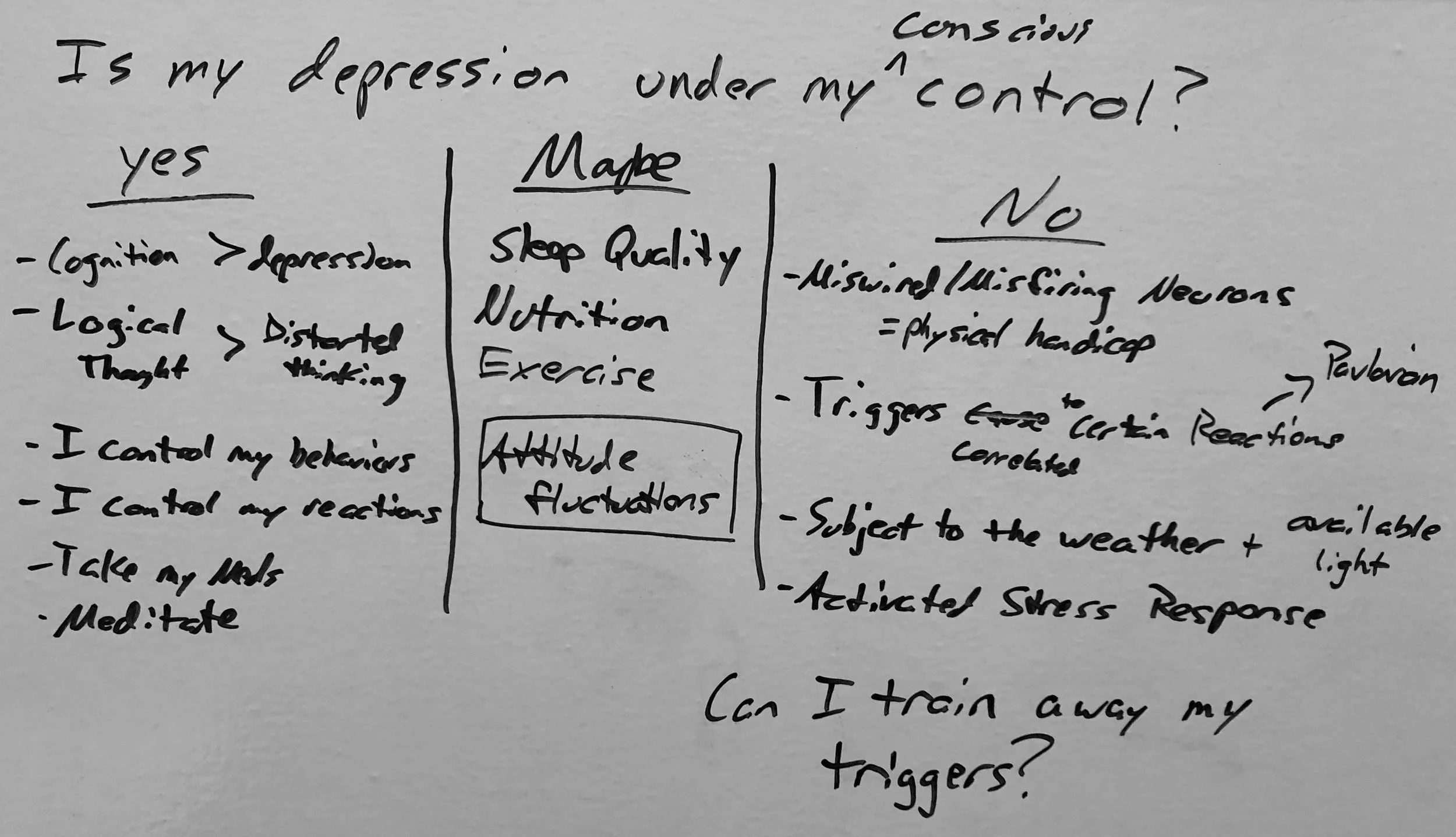Are My Depressed Thoughts Under My Conscious Control?
/“Just stop feeling sad.”
Brilliant advice! I shall get on that with all due haste.
“It’s all in your head.”
You are a sage! What more wisdom can you offer?
“Have you tried not being anxious?”
Nope. Actually, the sensation of imminent peril is quite exhilarating; I seek it out as often as possible.
These are a few of the idiotic suggestions I have been offered over the years to cope with my mental illnesses. The people offering them suffered from ignorance; believing that because feelings were feelings, I could override them with enough effort. I do not hold their ignorance against them, because I was equally oblivious.
I assumed that I should have iron control over my feelings in the same way I command my fingers type out this sentence. My anatomy teacher taught me all the different parts of the body that were not under my conscious control: marrow creating red blood cells, white blood cells attacking foreign material, nerves conducting impulses. Then we examined functions that ran automatically, but could be influenced with conscious thought: breathing, being the one we are most familiar with.
Certain bodily systems can be influenced if thought is turned to action. For example, I cannot increase my heart rate just by willing my heart to beat faster, but I can do so by sprinting around the block.
The mind, so far as we know, straddles the definitions of conscious influence and physical effort. Thoughts arise seemingly out of nowhere. Feelings snap into existence. We all have experienced the odd sensation of coming back to awareness from a daydream without ever realizing when we started dreaming.
So who is running the show? You or your mind?
The answer is; it’s complicated. If you want to dive into this more deeply, I recommend the wonderfully titled, and written, book, “The Three-Pound Enigma: The Human Brain and the Quest to Unlock its Mysteries”.
Though he was not speaking about the brain, the ever-quotable Winston Churchill gives a great explanation for the title of Shannon Moffett’s book:
It is a riddle, wrapped in a mystery, inside an enigma; but perhaps there is a key.
My anatomy teacher spent time instructing about the physical structure of the brain, and absolutely zero time explaining the mind because the mind is a fiendishly difficult puzzle, and we do not have all of the pieces.
Still, I like the challenge, and if I don’t figure out the big picture, maybe I can fit a few pieces together.
A snapshot of my whiteboard wall thoughts.






